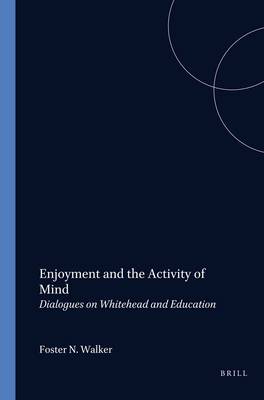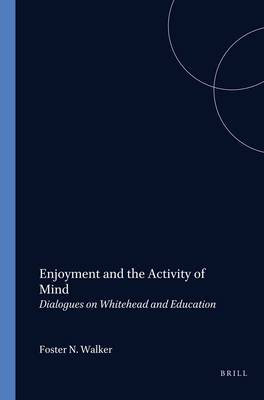
- Afhalen na 1 uur in een winkel met voorraad
- Gratis thuislevering in België vanaf € 30
- Ruim aanbod met 7 miljoen producten
- Afhalen na 1 uur in een winkel met voorraad
- Gratis thuislevering in België vanaf € 30
- Ruim aanbod met 7 miljoen producten
Zoeken
€ 90,45
+ 180 punten
Omschrijving
This book urges educational institutions to contemplate the harm they have caused to individual and society by their tragic suppression of the energy essential to the flowering of the mind's full potential. No more strident and uncompromising a voice is to be found on this topic than Whitehead's, in The Aims of Education and Other Essays. Walker's interpretation of these essays is set in a story of the lives of several teachers, education students, parents, and a professor. Whitehead's presence is conjured among them as an uncomfortable and challenging gadfly. The philosophic depth is made widely accessible through the conversational language of imaginary journals and dialogues. This strategy also enables Walker to demonstrate the neglected power of dialogic pedagogy, and to suggest its centrality in the realization of Whiteheadian aims. The dialogues show a group of people curiously energized by an inquiry in which their stereotypical foundations are crumbling under the combined impact of focused dialogue and the brilliance of Whitehead's counterpoint. Their creative vitality of mind is shaken out of the narcosis of ingrained routines and secondhand ideas, and they discover the forgotten power of revitalizing outlook and action with an individual discernment of meaning, importance, and truth. They have immediately experienced the very quality of mind and its manner of cultivation Whitehead insists upon. This is intelligence enriching life with its full and interweaving spectrum of intellectual, aesthetic, ethical, and spiritual sensitivities.
Specificaties
Betrokkenen
- Auteur(s):
- Uitgeverij:
Inhoud
- Aantal bladzijden:
- 172
- Taal:
- Engels
- Reeks:
- Reeksnummer:
- nr. 100
Eigenschappen
- Productcode (EAN):
- 9789042013124
- Verschijningsdatum:
- 1/01/2000
- Uitvoering:
- Paperback
- Formaat:
- Trade paperback (VS)
- Afmetingen:
- 150 mm x 220 mm
- Gewicht:
- 317 g

Alleen bij Standaard Boekhandel
+ 180 punten op je klantenkaart van Standaard Boekhandel
Beoordelingen
We publiceren alleen reviews die voldoen aan de voorwaarden voor reviews. Bekijk onze voorwaarden voor reviews.











